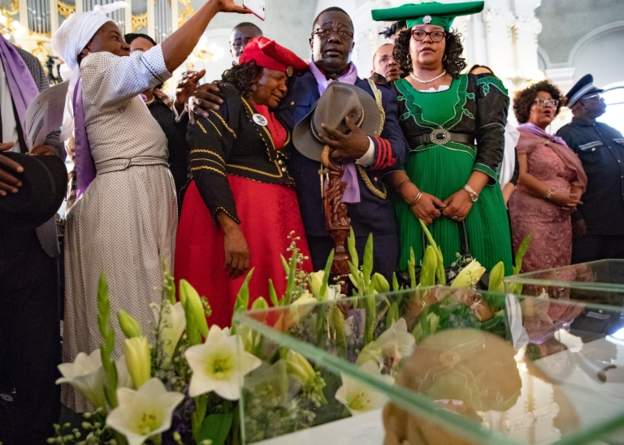Skulls of of people murdered during the Namibian genocide a century ago have finally arrived home. Tens of thousands of Namibians were slaughtered between 1904 and 1908.
Germany then colonized the Southern African nation and was responding to an anti-colonial uprising. Victims were from the Herero and Nama people who were indigenous Namibians.
On Wednesday a ceremony was performed in Berlin at a church service to hand over the remains.
The remains are were brought to Namibia on Friday by a delegation. A local ceremony was conducted in Namibia for the remains.
Namibia had accused Berlin of taking too long to formally apologize for massacre.
What sparked the killings?
In 1904, the Herero and Nama people rebelled in response to the expropriation of their land and cattle by Germany. The rebellion took place in then German South West Africa.
The head of the military administration in the region, asLothar von Trotha, ordered the massacre in response to the uprising.
The indigenous Herero and Nama people had to flee their lands. Those killed were people found trying to return to their expropriated lands.
Some were also kept in concentration camps. Over 100,000 died in the massacre although there has been disagreements over the exact death toll.
Germany has for years refused to accept responsibility and apologize. In 2016, Germany finally said it was prepared to apologise in principle.
The European super power however said it was negotiating with the government of Namibia on how to deal with the aftermath of the genocide.
Source: Africafeeds.com



